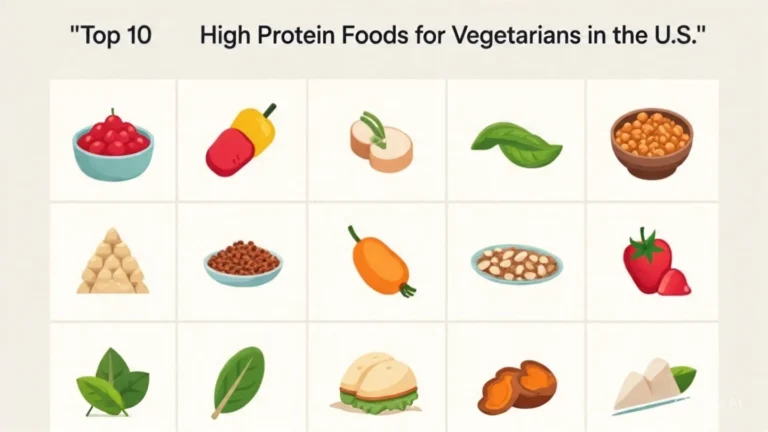परिभाषा (Definition):
शब्द (Word) वह ध्वनि (sound) या ध्वनियों का समूह (group of sounds) है जो किसी अर्थ (meaning) को व्यक्त करता है और भाषा (language) की मूल इकाई (basic unit) होता है। A word is the smallest unit of language that carries meaning and can be used independently or in combination to form sentences.
यह लिखित (written) या मौखिक (spoken) रूप में हो सकता है और विचारों (thoughts), भावनाओं (emotions), या वस्तुओं (objects) को व्यक्त करने का कार्य करता है। Words are the building blocks of communication in any language.
शब्द भाषा (language) का आधार (foundation) हैं, जो संचार (communication), साहित्य (literature), और संस्कृति (culture) को समृद्ध करते हैं। In Hindi, words are often derived from Sanskrit, Persian, or Arabic, while in English, they come from Latin, Germanic, or French origins.

Table of Contents
शब्द की विशेषताएँ (Characteristics of a Word):
- अर्थपूर्णता (Meaningfulness):
प्रत्येक शब्द (word) का एक निश्चित अर्थ (specific meaning) होता है जो संदर्भ (context) पर निर्भर करता है। A word conveys meaning based on its usage.
उदाहरण (Example):- हिंदी: “पानी” (water) का अर्थ जल (liquid) है।
- English: “Water” refers to the liquid substance.
- ध्वन्यात्मक संरचना (Phonetic Structure):
शब्द ध्वनियों (sounds) या अक्षरों (letters) से मिलकर बनता है। It is formed by combining phonemes or letters in a specific order.
उदाहरण: हिंदी में “घर” (house) में “घ”, “र” ध्वनियाँ हैं, while in English, “house” has sounds like “h”, “au”, “s”. - लचीलापन (Flexibility):
शब्द वाक्य (sentence) में विभिन्न भूमिकाएँ (roles) निभाते हैं, जैसे संज्ञा (noun), क्रिया (verb), विशेषण (adjective), आदि। Words can function as different parts of speech depending on context.
उदाहरण:- हिंदी: “खेल” (play) संज्ञा (noun) और क्रिया (verb) दोनों हो सकता है।
- English: “Play” can be a noun (a game) or a verb (to engage in a game).
- परिवर्तनशीलता (Variability):
शब्द समय (time) और संस्कृति (culture) के साथ बदल सकते हैं। Words evolve, with new ones added and old ones becoming obsolete.
उदाहरण: हिंदी में “मोबाइल” (mobile) और English में “selfie” आधुनिक शब्द (modern words) हैं। - सांस्कृतिक महत्व (Cultural Significance):
शब्द किसी समाज (society) की संस्कृति (culture) और परंपराओं (traditions) को दर्शाते हैं। Words reflect the values and identity of a community.
उदाहरण: हिंदी में “नमस्ते” (Namaste) सम्मान (respect) का प्रतीक है, while “Hello” in English is a neutral greeting. - लिखित और मौखिक रूप (Written and Spoken Form):
शब्द मौखिक रूप (spoken form) में ध्वनियों (sounds) और लिखित रूप (written form) में अक्षरों (letters) या लिपि (script) के रूप में होते हैं।
उदाहरण: हिंदी में “पेड़” (tree) देवनागरी लिपि (Devanagari script) में लिखा जाता है, while “tree” is written in Roman script. - स्वतंत्रता और संयोजन (Independence and Combination):
शब्द स्वतंत्र रूप (independently) या अन्य शब्दों के साथ मिलकर (in combination) अर्थ बनाते हैं। Words can stand alone or form phrases and sentences.
उदाहरण: “सुंदर” (beautiful) और “सुंदर फूल” (beautiful flower); “Beautiful” and “beautiful flower.”
शब्द के प्रकार (Types of Words):
हिंदी और अंग्रेजी में शब्दों को उनके कार्य (function) और स्वरूप (form) के आधार पर विभिन्न प्रकारों में बांटा जाता है। The classification of words in Hindi and English is based on their grammatical role and structure.
1. संज्ञा (Noun):
शब्द जो किसी व्यक्ति (person), स्थान (place), वस्तु (thing), या विचार (idea) को दर्शाते हैं। A word that names a person, place, thing, or idea.
उदाहरण:
- हिंदी: “राम” (Ram), “दिल्ली” (Delhi), “किताब” (book).
- English: “Ram,” “Delhi,” “book.”
2. सर्वनाम (Pronoun):
शब्द जो संज्ञा (noun) की जगह लेते हैं। A word that replaces a noun.
उदाहरण:
- हिंदी: “मैं” (I), “वह” (he/she), “यह” (this).
- English: “I,” “he/she,” “this.”
3. क्रिया (Verb):
शब्द जो कार्य (action), स्थिति (state), या घटना (occurrence) को दर्शाते हैं। A word that describes an action, state, or occurrence.
उदाहरण:
- हिंदी: “दौड़ना” (run), “है” (is), “खाना” (eat).
- English: “Run,” “is,” “eat.”
4. विशेषण (Adjective):
शब्द जो संज्ञा (noun) की विशेषता (quality), मात्रा (quantity), या सीमा (extent) को बताते हैं। A word that describes or modifies a noun.
उदाहरण:
- हिंदी: “सुंदर” (beautiful), “बड़ा” (big), “लाल” (red).
- English: “Beautiful,” “big,” “red.”
5. क्रिया विशेषण (Adverb):
शब्द जो क्रिया (verb), विशेषण (adjective), या अन्य क्रिया विशेषण (adverb) की विशेषता बताते हैं। A word that modifies a verb, adjective, or another adverb.
उदाहरण:
- हिंदी: “जल्दी” (quickly), “धीरे” (slowly), “बहुत” (very).
- English: “Quickly,” “slowly,” “very.”
6. संबंध सूचक अव्यय (Preposition):
शब्द जो संज्ञा (noun) या सर्वनाम (pronoun) का अन्य शब्दों से संबंध दर्शाते हैं। A word that shows the relationship of a noun or pronoun with other words.
उदाहरण:
- हिंदी: “पर” (on), “के पास” (near), “में” (in).
- English: “On,” “near,” “in.”
7. संयोजक (Conjunction):
शब्द जो शब्दों (words), वाक्यांशों (phrases), या वाक्यों (sentences) को जोड़ते हैं। A word that connects words, phrases, or sentences.
उदाहरण:
- हिंदी: “और” (and), “लेकिन” (but), “क्योंकि” (because).
- English: “And,” “but,” “because.”
8. विस्मयादिबोधक (Interjection):
शब्द जो भावनाओं (emotions) जैसे आश्चर्य (surprise), खुशी (joy), या दुख (sorrow) को व्यक्त करते हैं। A word that expresses sudden emotions.
उदाहरण:
- हिंदी: “वाह!” (Wow!), “हाय!” (Alas!), “छी!” (Ugh!).
- English: “Wow!,” “Alas!,” “Ugh!”
9. मूल शब्द और व्युत्पन्न शब्द (Root and Derived Words):
- मूल शब्द (Root Word): वह शब्द जो मूल रूप (basic form) में होता है। A word in its simplest form.
उदाहरण: हिंदी में “पढ़” (read), English में “read.” - व्युत्पन्न शब्द (Derived Word): मूल शब्द में प्रत्यय (suffix) या उपसर्ग (prefix) जोड़कर बनता है। A word formed by adding prefixes or suffixes to a root word.
उदाहरण: हिंदी में “पढ़ाई” (reading/study), English में “reader.”
10. एकल और यौगिक शब्द (Simple and Compound Words):
- एकल शब्द (Simple Word): एक ही अर्थपूर्ण इकाई (single meaningful unit).
उदाहरण: हिंदी में “घर” (house), English में “house.” - यौगिक शब्द (Compound Word): दो या अधिक शब्दों के संयोजन से बनता है। A word formed by combining two or more words.
उदाहरण: हिंदी में “रेलगाड़ी” (railway train), English में “railway.”
शब्द के स्रोत (Sources of Words):
- हिंदी में (In Hindi):
हिंदी शब्द मुख्य रूप से संस्कृत (Sanskrit), फारसी (Persian), अरबी (Arabic), और क्षेत्रीय बोलियों (regional dialects) जैसे भोजपुरी (Bhojpuri), अवधी (Awadhi) से आए हैं। आधुनिक समय में अंग्रेजी (English) से भी कई शब्द अपनाए गए हैं।
उदाहरण:- संस्कृत से: “विद्या” (knowledge).
- फारसी से: “दिल” (heart).
- अरबी से: “किताब” (book).
- अंग्रेजी से: “टेलीविजन” (television).
- अंग्रेजी में (In English):
English words are derived from Germanic, Latin, French, and Norse origins, with influences from other languages due to globalization.
उदाहरण:- Germanic: “house.”
- Latin: “audio” (sound).
- French: “ballet.”
- Norse: “sky.”
शब्द का महत्व (Importance of Words):
- संचार का आधार (Foundation of Communication):
शब्द विचारों (thoughts) और भावनाओं (emotions) को व्यक्त करने का साधन हैं। Words enable people to communicate ideas and feelings effectively.
उदाहरण: “मैं भूखा हूँ” (I am hungry) और “I am hungry” आवश्यकता (need) को व्यक्त करते हैं। - सांस्कृतिक संरक्षण (Cultural Preservation):
शब्द संस्कृति (culture) और परंपराओं (traditions) को जीवित रखते हैं। Words preserve the heritage and identity of a community.
उदाहरण: हिंदी में “दिवाली” (Diwali) और English में “Christmas” सांस्कृतिक उत्सवों (cultural festivals) को दर्शाते हैं। - शिक्षा और ज्ञान (Education and Knowledge):
शब्द ज्ञान के प्रसार (dissemination of knowledge) का माध्यम हैं। Words are essential for teaching and learning.
उदाहरण: हिंदी में “विज्ञान” (science) और English में “science” ज्ञान का आधार हैं। - रचनात्मकता (Creativity):
शब्द साहित्य (literature), कविता (poetry), और कहानियों (stories) के माध्यम से रचनात्मकता (creativity) को बढ़ावा देते हैं।
उदाहरण: हिंदी में “कबीर” (Kabir) की दोहे और English में “Shakespeare” की रचनाएँ। - सामाजिक संबंध (Social Bonding):
शब्द लोगों को जोड़ते (connect people) हैं और सामाजिक संबंधों (social relationships) को मजबूत करते हैं।
उदाहरण: “नमस्ते” (Namaste) और “Hello” अभिवादन (greeting) के रूप में बंधन बनाते हैं।
हिंदी और अंग्रेजी में शब्दों की तुलना (Comparison of Words in Hindi and English):
| विशेषता (Feature) | हिंदी (Hindi) | अंग्रेजी (English) |
|---|---|---|
| लिपि (Script) | देवनागरी (Devanagari) | Roman |
| उच्चारण (Pronunciation) | ध्वनियाँ स्पष्ट और नियमित (phonetic and regular) | Often irregular |
| उदाहरण (Example) | “पानी” (paani) जैसा लिखा, वैसा बोला | “Water” (spelling and pronunciation differ) |
| शब्द निर्माण (Word Formation) | संस्कृत, फारसी, अरबी से प्रभावित (Sanskrit, Persian, Arabic influence) | Germanic, Latin, French influence |
| उदाहरण (Example) | “आदमी” (man) from Arabic | “Man” from Old English |
| लिंग (Gender) | संज्ञा और विशेषण में लिंग (masculine/feminine) | Gender-neutral except pronouns |
| उदाहरण (Example) | “सुंदर लड़का/लड़की” (beautiful boy/girl) | “Beautiful boy/girl” |
| शब्दों का विकास (Evolution) | क्षेत्रीय बोलियों और अंग्रेजी से नए शब्द (new words from dialects and English) | Global influence, new words like “internet” |
| उदाहरण (Example) | “मोबाइल” (mobile) | “Selfie” |
शब्दों के उदाहरण (Examples of Words):
- दैनिक जीवन में (In Daily Life):
हिंदी: “मैं बाज़ार से फल लाया।” (I brought fruits from the market.)
English: “I brought fruits from the market.” - शिक्षा में (In Education):
हिंदी: “छात्र गणित पढ़ते हैं।” (Students study mathematics.)
English: “Students study mathematics.” - भावनात्मक अभिव्यक्ति में (In Emotional Expression):
हिंदी: “वाह! कितना सुंदर फूल!” (Wow! What a beautiful flower!)
English: “Wow! What a beautiful flower!” - साहित्य में (In Literature):
हिंदी: “प्रेमचंद की कहानियाँ समाज को दर्शाती हैं।” (Premchand’s stories reflect society.)
English: “Shakespeare’s plays explore human nature.”
शब्दों का विकास (Evolution of Words):
शब्द समय के साथ बदलते (evolve) और नए अर्थ (new meanings) ग्रहण करते हैं। Words adapt to cultural, technological, and social changes.
- हिंदी में (In Hindi):
हिंदी शब्द संस्कृत (Sanskrit) से विकसित हुए और फारसी (Persian), अरबी (Arabic), और अंग्रेजी (English) से प्रभावित हुए।
उदाहरण: “रेडियो” (radio) और “कंप्यूटर” (computer) अंग्रेजी से आए। - अंग्रेजी में (In English):
English words evolved from Old English, with influences from Latin, French, and modern global languages.
उदाहरण: “Telephone” from Greek roots and “internet” as a modern creation.
निष्कर्ष (Conclusion):
शब्द (Word) भाषा (language) की आत्मा (soul) हैं जो संचार (communication), संस्कृति (culture), और रचनात्मकता (creativity) का आधार बनाते हैं। Words are the essence of human expression, enabling us to share ideas, emotions, and knowledge. हिंदी में शब्द (Hindi words) सांस्कृतिक धरोहर (cultural heritage) को संजोते हैं, जबकि अंग्रेजी में शब्द (English words) वैश्विक संवाद (global communication) को बढ़ावा देते हैं। Whether in Hindi or English, words shape our thoughts, connect societies, and preserve our history, making them indispensable to human life.









